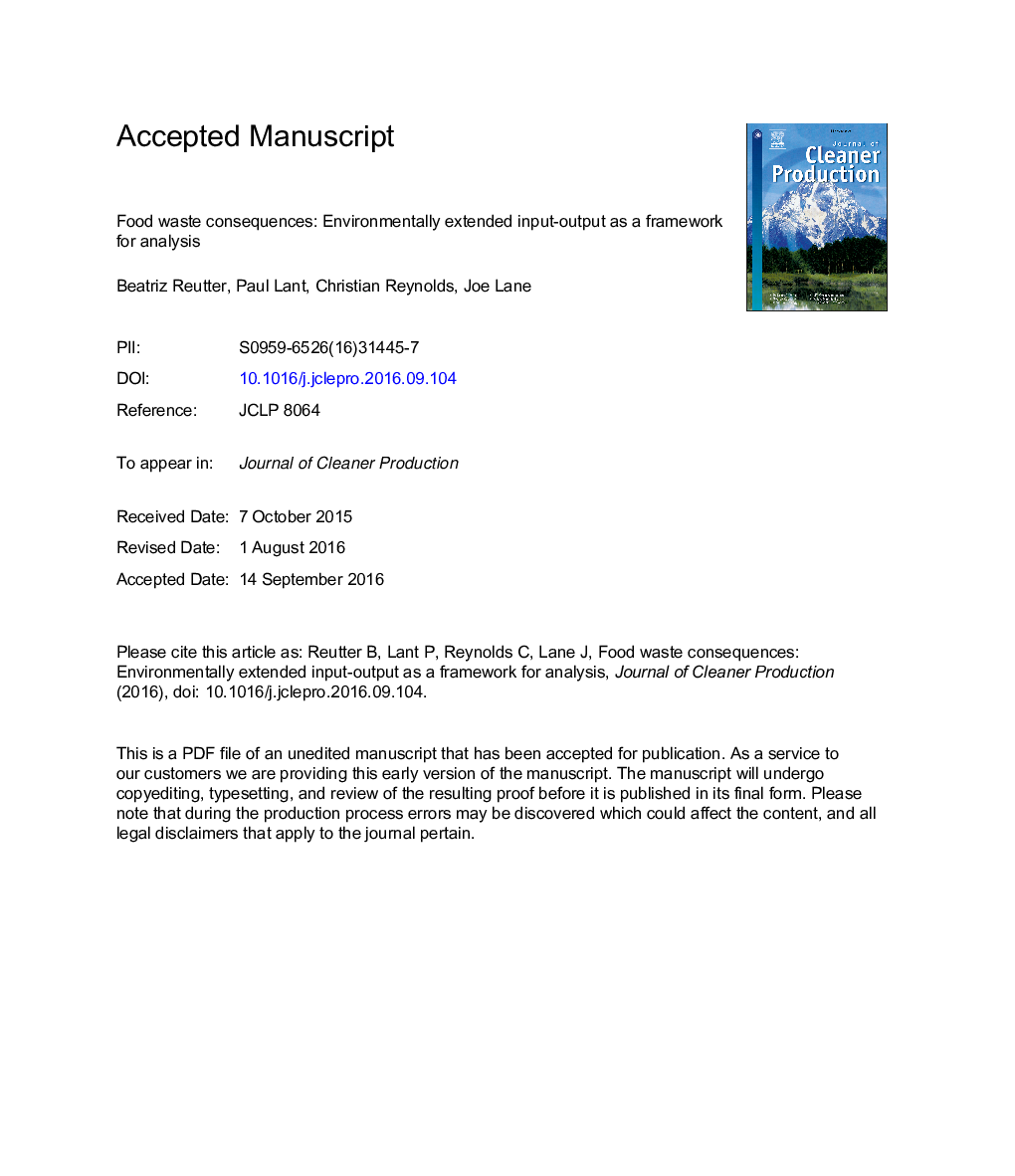| Article ID | Journal | Published Year | Pages | File Type |
|---|---|---|---|---|
| 5479661 | Journal of Cleaner Production | 2017 | 18 Pages |
Abstract
This work presents a critique of the environmentally-extended input-output (EeIO) methodology for analysing the environmental and socio-economic impacts of food systems in order to address food waste problems. We applied EeIO analysis to estimate environmental and economic factors embodied in Australian food waste. The scope of the study does not include the impacts of food use nor end-of-life waste treatment. The impact of imported food was considered the same as Australian produced food. Results indicate that Australian food waste represents 9% of total water use, 6% of GHG emissions, 1% of surplus and 1% of compensation to employees. The analysis shows that the method is adequate to analyse environmental and socio-economic aspects of food waste. The main benefits of EeIO are that it provides inclusive information of all actors in the food supply chain, includes all products available, enables analysis of environmental and economic indicators together, and provides a consistent framework for analysis, consistently defining system boundaries. Through the exercise we identify key aspects to consider when analysing food waste consequences.
Related Topics
Physical Sciences and Engineering
Energy
Renewable Energy, Sustainability and the Environment
Authors
Beatriz Reutter, Paul Lant, Christian Reynolds, Joe Lane,
